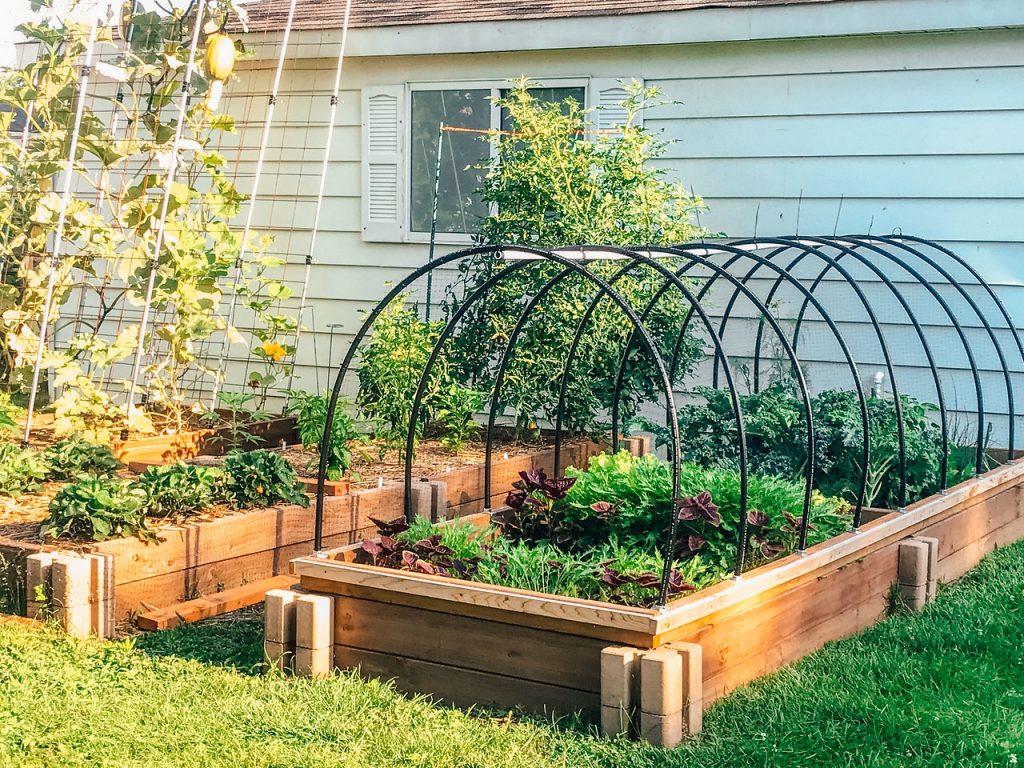WDET At Home: Start Your First Garden for Free
In this inaugural “WDET At Home” episode, we answer your questions about gardening, cultivating and bringing plants to life… or at least keep them from wilting.

It’s May in Michigan, which means novice and expert gardeners alike are exercising green thumbs across the state.
And a global pandemic is a great time to start planting — whether that be potted herbs, a raised bed garden, or a full-fledged hole in the ground.
101.9 WDET is here to assist our audience in learning new skills they can execute from the comfort of their domestic abodes. This week, producers Jake Neher and Annamarie Sysling hosted a conversation about planting your first garden.
Guests
- Gary Pilarchik runs the Rusted Garden YouTube channel and seed shop.
- Lindsay Pielack is the Co-Director of Keep Growing Detroit, a local non-profit gardening organization.
Click on the player above for the full conversation on planting your first garden, and read insights below.
FAQ
What advice do you have for someone who wants to start a vegetable garden this spring?
Don’t get overwhelmed. Be willing to lose some plants, be willing to fail, you’re always going to have successes. You can keep a journal, learn from your mistakes, and reach out to your local garden community. Watch the “Complete Guide to Digging and Planting Your Own Vegetable Garden.”
What are some cold weather crops that will grow in Southeast Michigan?
Cold weather crops include broccoli, cauliflower, cabbage, brussels sprouts, kale, lettuce, radishes, and peas. Cold weather crops like 40-degree nights. Start with cold weather crops and move on to warm weather crops when you are confident there will not be any more hard frosts in your area.
Have a plan for planting your cold-weather crops when it’s time to plant them. In Michigan, you have to pay attention to the weather. If there is a frost coming at night, cover your plants to protect them from frost damage. You can find the average frost dates for your area online at the Farmer’s Almanac.
Can I plant old seeds?
Some seeds can last years or decades, but there is no guarantee that old seeds will grow. It is worth a try, but you may also want to plant new seeds of the same vegetable. That way, if your old seeds don’t work out, you still have vegetables come harvest.
To test if the seeds will grow when you plant them, get a damp paper towel and wrap it around teaspoon of seeds. Put that in a plastic bag and put it underneath the refrigerator. Wait a few days. If you see germination, you’ll know it’s worth planting the rest of your seeds.
How tall should my raised bed be?
When building a raised bed, most crops need six to eight inches. The roots need room to thrive, so build your raised bed at least eight to ten inches tall.
What is the one dig, zero-dollar garden?
The one dig, zero-dollar garden is a great way to get started gardening. It does require quite a bit of effort to dig the initial hole. You dig out the grass, go down about 12 inches, and take the dirt out. Take things that you have laying around like leaves, grass and sticks. It will break down over time and feed your plants. A manageable size to start with is a 4-foot by 4-foot square. Watch the video on the Rusted Garden YouTube Channel for step-by-step instructions.
Should gardeners use the no-till gardening approach for their first garden?
If you are confident that your soil is free of contaminants like lead, no-till gardening is a a great way to start building a brand-new garden. Use something that will decay, like cardboard, to block out the light from the grass. Every year, you add more compost to it, so you’ll need your own compost pile, or access to purchasing compost.
If you do have contaminants in your soil, it is best to build a raised bed.
What can I grow if I don’t have a yard that I can start a garden in?
If you live in an apartment, or have limited yard space, you can still start growing this spring. Some herbs like basil and cilantro can be grown in a window that gets six or more hours of direct sunlight, and they are quick to germinate. If you want to try a container on the patio, tomatoes are a good option. Just make sure the container drains well and is large enough for your plant. For soil, try mixing potting soil with compost.
You can also find a community garden in your area, or even ask a friend or family member if you can start a garden in their yard.
Should I plant milkweed and other native plants in my garden?
Incorporating native plants like milkweed attracts pollinators, captures rainwater, and reduces stormwater runoff. Milkweed grows quickly and spreads, so expect it to grow well in your garden.
Trusted, accurate, up-to-date
WDET is here to keep you informed on essential information, news and resources related to COVID-19.
This is a stressful, insecure time for many. So it’s more important than ever for you, our listeners and readers, who are able to donate to keep supporting WDET’s mission. Please make a gift today.
